In an era of carefully crafted celebrity personas, Steve McQueen remains the genuine article—a star whose magnetic presence redefined what it meant to be cool on screen. With his minimalist acting style and authentic approach to performing his own stunts whenever possible, McQueen created a template for action stars that remains influential decades after his passing. His characters weren’t just tough—they possessed a quiet dignity and resilience that transcended mere machismo.
1. Captain Virgil Hilts in “The Great Escape” (1963)
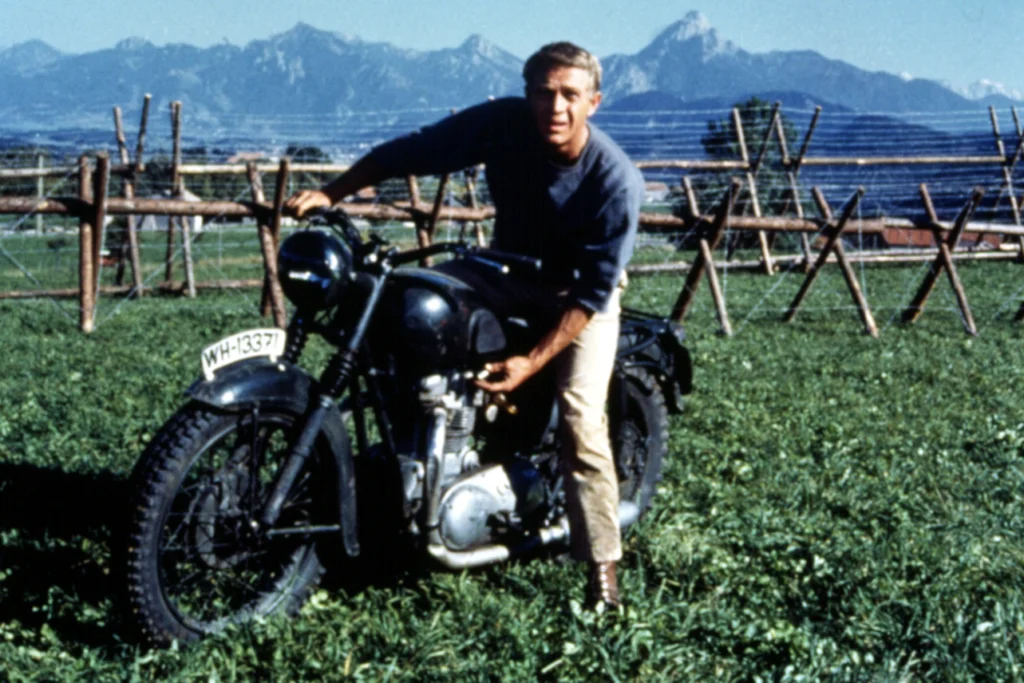
As the “Cooler King” in this WWII prison camp classic, McQueen embodied the very essence of American defiance with his repeated escape attempts and iconic motorcycle chase. His baseball-throwing, solitary confinement sequences brilliantly established both his character’s stubborn determination and his fundamental isolation from others. The moment he eyes the motorcycle reveals McQueen’s gift for conveying volumes of information without a single word of dialogue. According to Collider, the story behind this film is actually even more thrilling.
What makes Hilts endure as the quintessential McQueen role is how he balances individual rebellion with reluctant responsibility to the larger cause. When he finally agrees to act as lookout rather than escape alone, we see the character’s growth without any sentimental transformation scene or heavy-handed dialogue. The image of McQueen sailing over barbed wire fences on that motorcycle has become shorthand for audacious freedom—a visual metaphor that continues to resonate with anyone who’s ever felt the constraints of authority.
2. Lieutenant Frank Bullitt in “Bullitt” (1968)
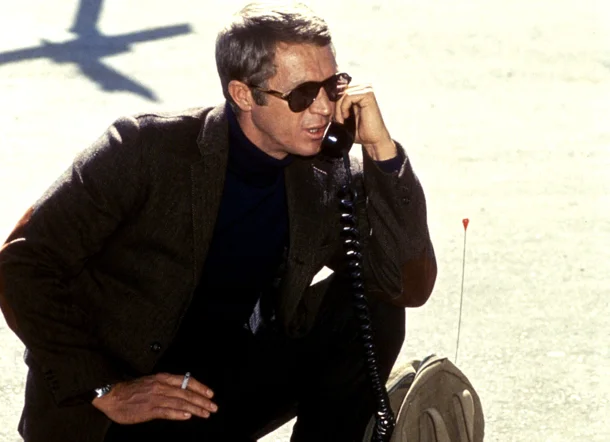
As the San Francisco detective determined to solve a witness’s murder, McQueen created the template for the modern action hero: professionally competent, personally reserved, and utterly committed to his own code of ethics. His ice-blue stare conveyed more authority than pages of tough-guy dialogue ever could. The famous car chase through San Francisco’s hills showcased not just spectacular driving but McQueen’s absolute physical commitment to making the action feel authentic. According to CBR, this might just be his coolest role, except for one underrated hit.
What makes Bullitt so influential is McQueen’s revolutionary underplaying of the role—his detective doesn’t make quips or grandstand but simply gets the job done with maximum efficiency and minimum fuss. The character’s domestic scenes with Jacqueline Bisset reveal a man uncomfortable with emotional intimacy yet capable of genuine connection. Bullitt remains the gold standard for cinematic cool because the character’s authority comes not from posturing but from absolute competence and unwavering integrity.
3. Henri “Papillon” Charrière in “Papillon” (1973)
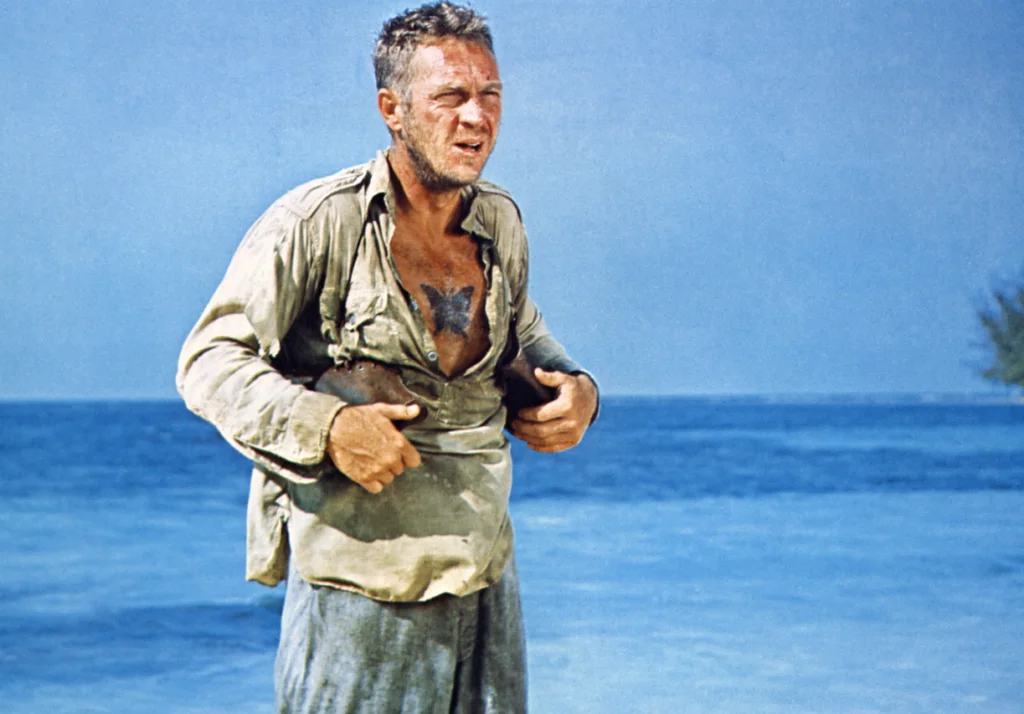
As the wrongfully convicted prisoner determined to escape the brutal penal colony of French Guiana, McQueen delivered perhaps his most physically demanding performance. His portrayal of a man enduring years of solitary confinement showed how confinement affects both body and spirit without resorting to histrionics. The scenes of Papillon surviving on coconuts and insects while planning his escape demonstrate McQueen’s willingness to portray vulnerability without sacrificing his essential dignity. MovieWeb considers this to be the pinnacle of McQueen’s remarkable career, and that’s saying something.
What makes this performance so powerful is how McQueen physically transforms throughout the film, becoming gaunt and weathered yet maintaining an unbroken spirit. The quiet determination in his eyes as he stands on the cliff contemplating his final escape attempt communicates the character’s entire emotional journey. This role continues to resonate because it shows how McQueen could bring his signature resilience to a character study that goes beyond simple action heroics into the realm of profound human endurance.
4. Thomas Crown in “The Thomas Crown Affair” (1968)
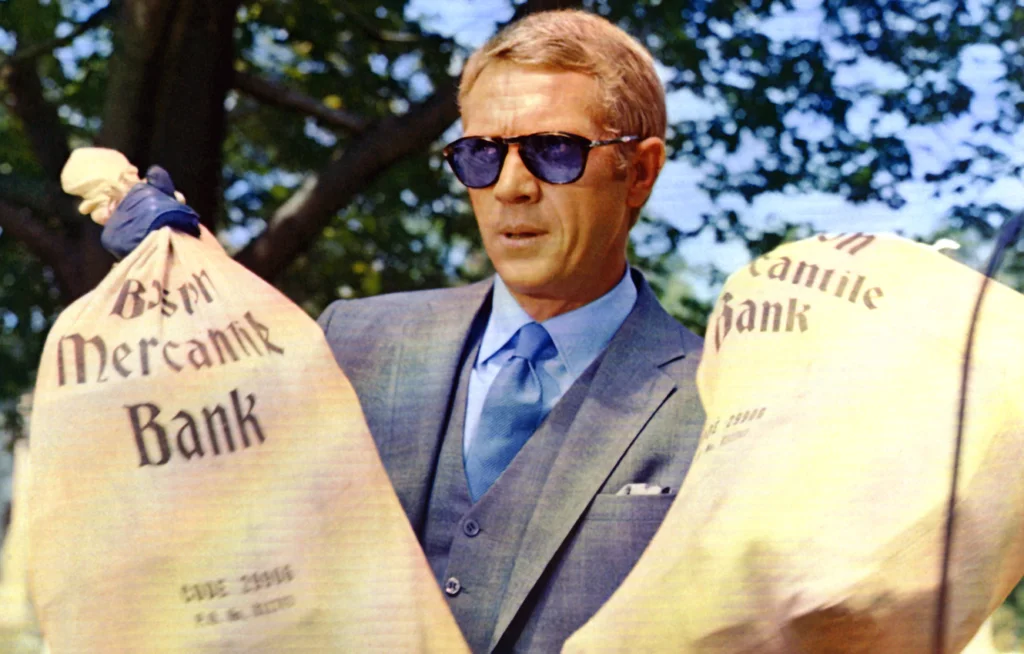
As the bored millionaire who orchestrates bank heists for sport, McQueen shattered his working-class image and proved he could exude sophistication as effortlessly as rugged individualism. His immaculate tailoring and deft piloting of gliders and dune buggies created a new template for the gentleman adventurer. The famous chess scene with Faye Dunaway transformed a board game into the most smoldering display of mutual attraction cinema had yet seen. Naturally, when ScreenRant made its list of McQueen’s best films, this one earned a special place of honor.
What makes Crown such a fascinating McQueen creation is how he uses reserve and restraint to suggest hidden depths rather than emptiness. When Crown allows himself a brief smile after pulling off his elaborate heist, we glimpse the mischievous child beneath the businessman’s polished exterior. This character endures because he represents the fantasy of complete self-sufficiency—a man wealthy enough to live by his own rules yet still hungry for the thrill of risk and genuine connection.
5. Doc McCoy in “The Getaway” (1972)
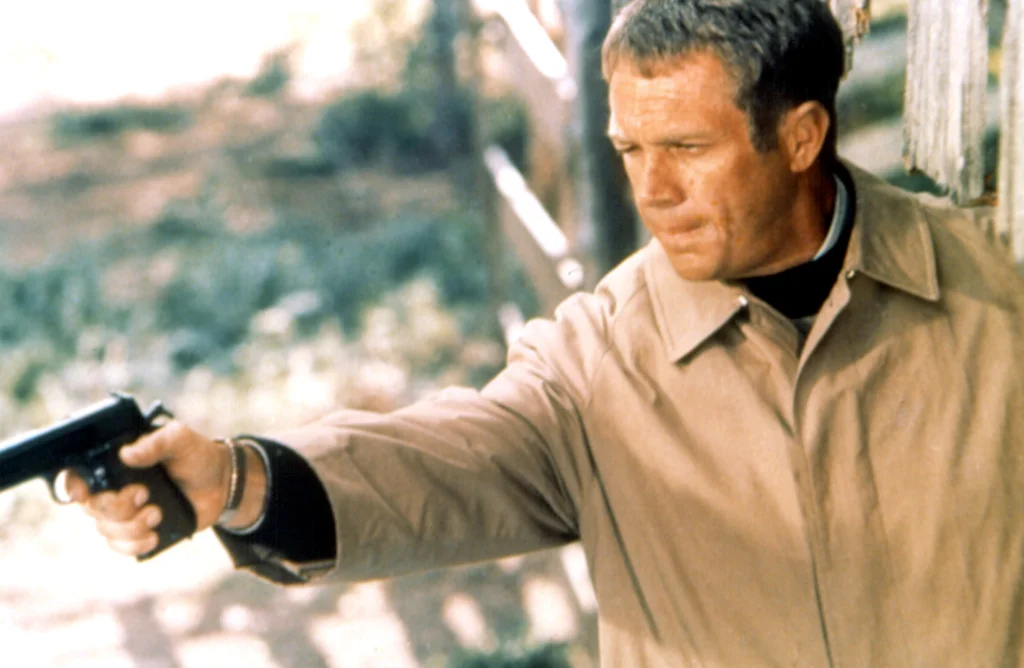
As the recently paroled bank robber trying to escape to Mexico with his wife after a heist goes wrong, McQueen brought gritty authenticity to what could have been a standard crime thriller. His portrayal balanced tough professionalism with genuine vulnerability in his complex relationship with Ali MacGraw’s character. The sequence where McCoy methodically disassembles and cleans his shotgun demonstrated McQueen’s gift for making technical details both visually interesting and revealing of character.
What makes McCoy compelling is how McQueen portrays a man whose criminal expertise contradicts his desire for a normal life with the woman he loves. The moments of tenderness between violent episodes suggest a man capable of redemption without ever making him sentimental or soft. This character resonates because he embodies the tension between survival instincts and human connection—a theme that continues to drive crime dramas decades later.
6. Jake Holman in “The Sand Pebbles” (1966)
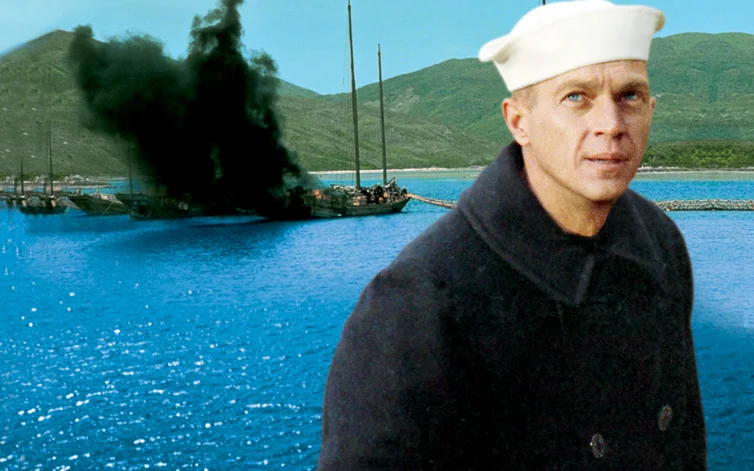
As the naval engineer assigned to a gunboat patrolling China’s Yangtze River in the 1920s, McQueen earned his only Oscar nomination playing a man whose dedication to machinery exceeds his comfort with human relationships. His quiet delivery of the line “I’m just a engine man” reveals a character who defines himself by his work rather than his place in society. The scenes of Holman teaching his Chinese assistant to maintain the ship’s engine show McQueen’s ability to convey professional pride without a hint of condescension.
What makes this performance stand out is how McQueen uses Holman’s initial emotional detachment to make his eventual moral awakening all the more powerful. When he finally takes action based on principle rather than orders, we believe the character’s transformation because McQueen had established such a convincing psychological foundation. Holman endures as a character because he represents the universal journey from isolation to engagement with the moral complexities of the world.
7. Junior Bonner in “Junior Bonner” (1972)
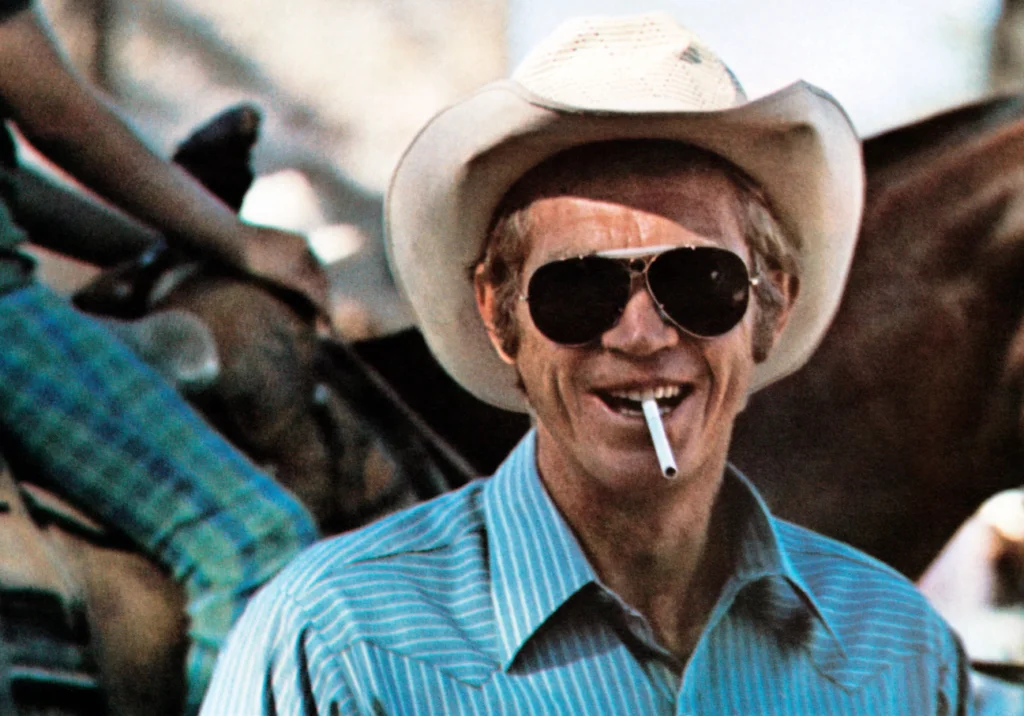
As the aging rodeo rider returning to his hometown for one last competition, McQueen delivered a nuanced portrayal of a man confronting his own obsolescence in a changing American West. His physical authority in the rodeo sequences came from months of training and his determination to perform his own riding scenes. The quiet dignity with which Junior faces his declining prospects revealed McQueen’s ability to convey vulnerability without sacrificing masculine strength.
What makes Junior Bonner so affecting is McQueen’s portrayal of a man whose adherence to traditional values puts him at odds with modern America. The scenes with his father (played by Robert Preston) create a poignant picture of generational continuity in the face of cultural change. This character continues to resonate because he represents something increasingly rare in both cinema and society: a hero whose nobility comes not from conquering others but from remaining true to himself even in defeat.
8. Boon Hogganbeck in “The Reivers” (1969)
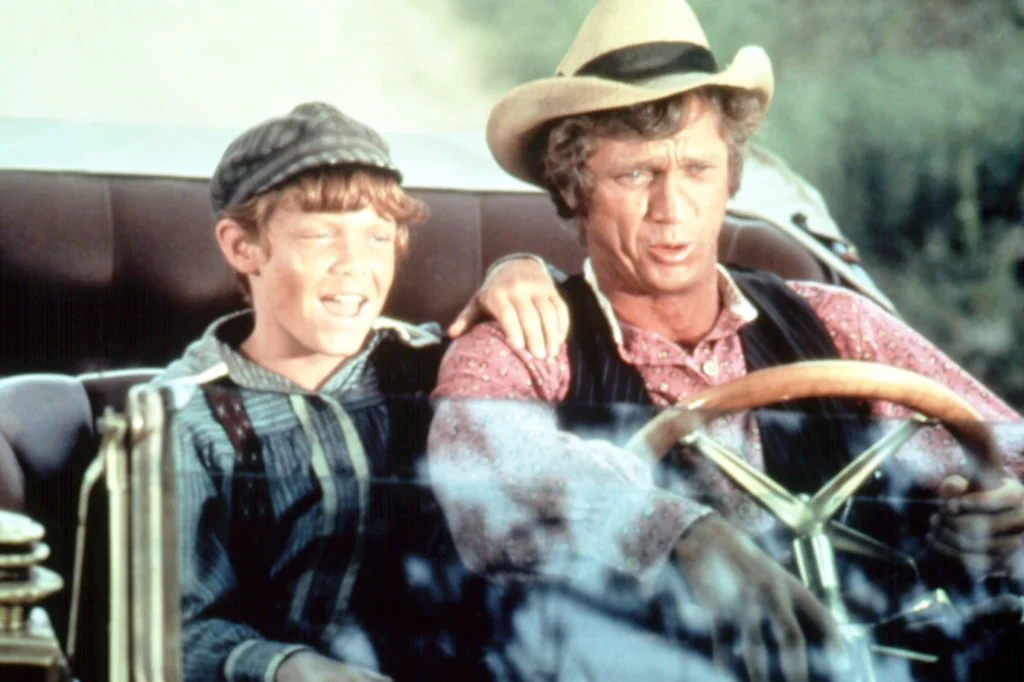
As the charismatic troublemaker who “borrows” his boss’s car for an adventure to Memphis with a young boy and their companion, McQueen showcased his rarely seen comedic talents without sacrificing his essential cool. His playful performance revealed a lightness rarely seen in his more famous action roles. The scenes of Boon teaching young Lucius about life’s pleasures and pitfalls allowed McQueen to display paternal warmth beneath his characteristic swagger.
What makes Boon stick with us is McQueen’s ability to portray a man who is simultaneously irresponsible and deeply loyal to those in his care. When he must win a horse race to reclaim their pawned car, we see his casual attitude give way to fierce determination. This character endures because he represents the eternal appeal of the charming rogue who ultimately reveals a moral core beneath his rebellious exterior—a figure who teaches us that growing up doesn’t necessarily mean abandoning joy.
9. Max Sand in “Nevada Smith” (1966)
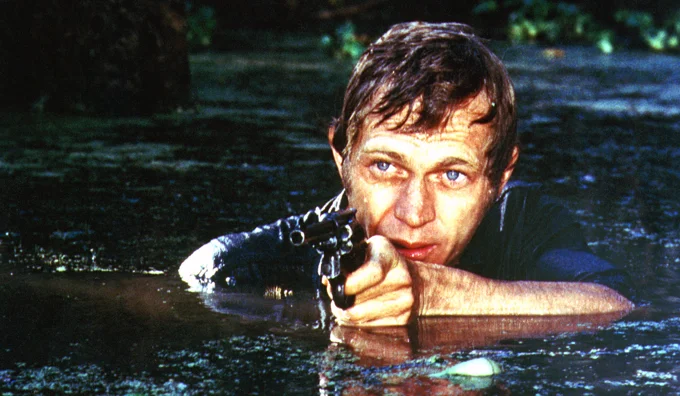
As the half-Native American youth seeking revenge for his parents’ murder, McQueen delivered a performance that transformed from raw fury to strategic patience. Despite being too old for the role on paper, he made the character’s evolution from inexperienced boy to calculated hunter entirely believable. The scenes where Sand learns gunfighting skills showcase McQueen’s physical commitment to showing the actual process of acquiring deadly expertise.
What makes Sand’s journey compelling is how McQueen gradually reveals the character’s growing awareness that revenge cannot restore what he has lost. The quiet moments where Sand contemplates abandoning his quest show the soul-searching beneath the character’s determined exterior. This role continues to resonate because it transcends simple revenge narrative to explore how the pursuit of vengeance transforms the avenger—a theme that continues to drive countless action films today.
10. Vin Tanner in “The Magnificent Seven” (1960)
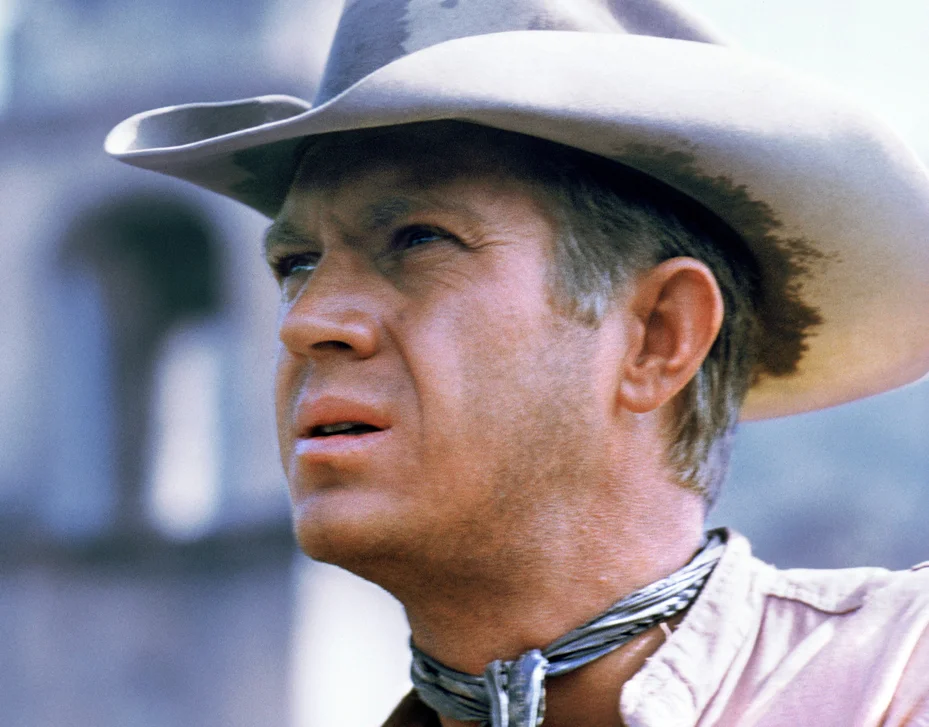
As the drifter who joins six other gunfighters to defend a Mexican village from bandits, McQueen created a character whose laconic style and scene-stealing techniques launched him to stardom. His repeated adjustment of his hat brim and casual handling of his weapon established an effortless cool that contrasted with Yul Brynner’s more formal gunfighter. The scene where Tanner shoots a fleeing bandit from horseback with a rifle showcased both McQueen’s physical prowess and his character’s professional detachment.
What makes Tanner memorable beyond the action sequences is McQueen’s subtle portrayal of a man finding purpose beyond mere survival. When he develops a protective relationship with the village children, we see glimpses of humanity beneath the gunfighter’s reserve. This character endures because he represents the quintessential American myth of the capable loner who finds redemption through defending those who cannot defend themselves—a template McQueen would continue to refine throughout his career.
11. Eric Stoner (The Cincinnati Kid) in “The Cincinnati Kid” (1965)
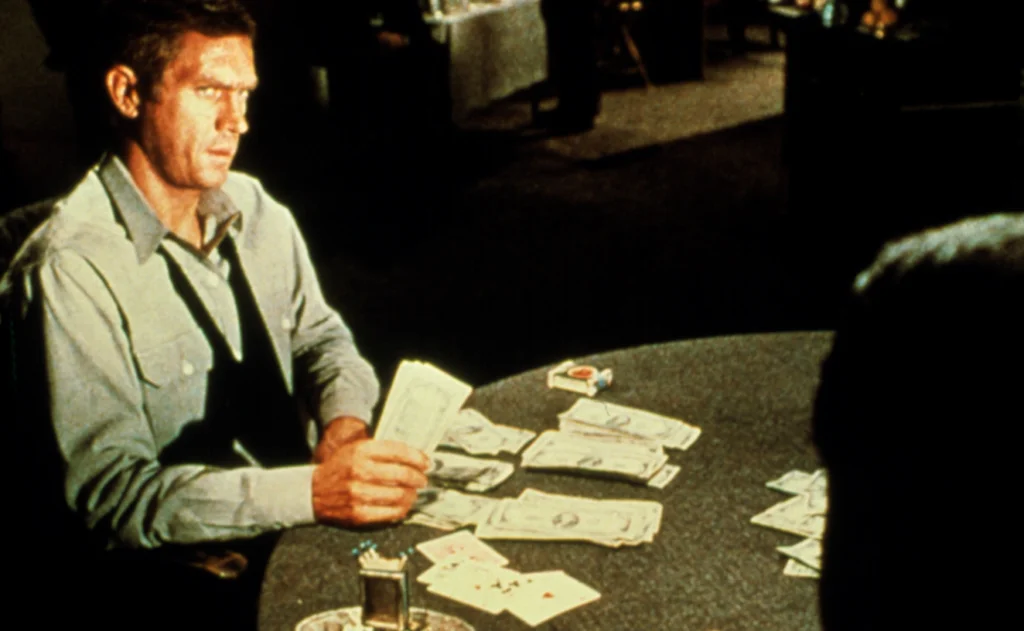
As the young poker player challenging the reigning champion, McQueen brought simmering intensity to a role that required him to convey complex calculations without revealing them to his opponents. His ability to make card playing visually compelling came from his absolute commitment to the character’s emotional journey. The contrast between the Kid’s professional poker face and his vulnerable moments with Tuesday Weld showcased McQueen’s range without sacrificing his essential cool.
What makes the Cincinnati Kid such a fascinating McQueen creation is how he uses stillness to suggest the character’s roiling inner life. When the Kid finally loses the climactic hand, McQueen’s minimal reaction tells us everything about the character’s simultaneous devastation and relief at having his ambitions resolved. This performance continues to influence actors because it demonstrates how restraint can create more powerful emotional impact than explicit emoting—especially in characters defined by their self-control.
12. Bud Ekins in “The Hunter” (1980)
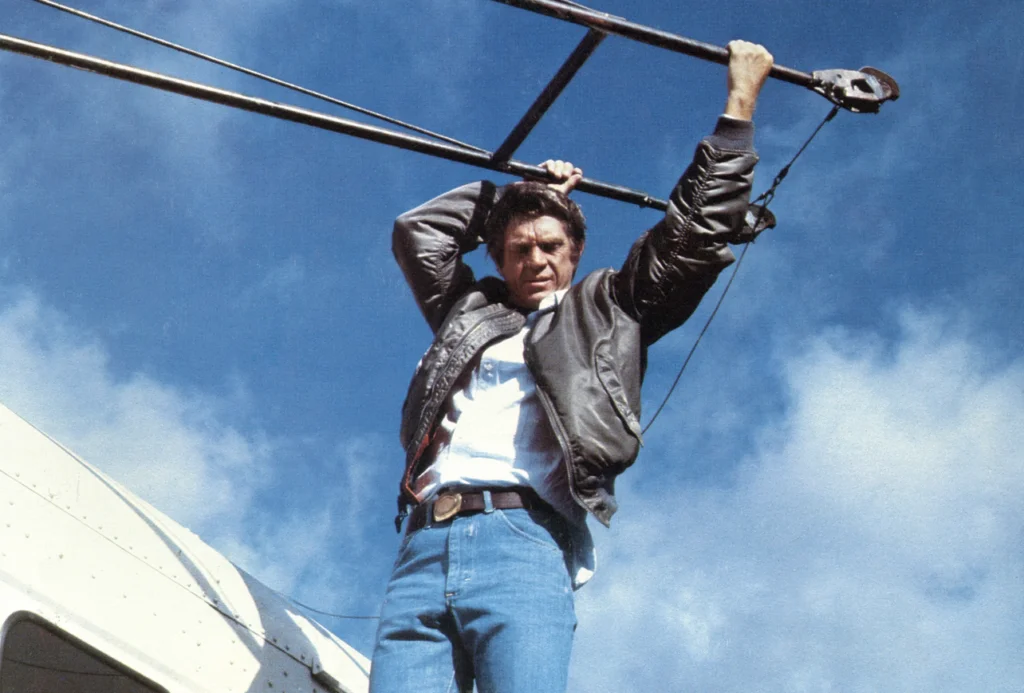
As bounty hunter Ralph “Papa” Thorson in his final film, McQueen brought a world-weary authenticity to what could have been a standard action role. His portrayal of a man whose old-school methods are becoming obsolete in the modern world reflected McQueen’s own relationship with Hollywood in his later years. The scenes of Thorson pursuing fugitives while managing his complicated personal life showed McQueen could still command the screen with minimal dialogue and maximum presence.
What makes this performance particularly poignant is how McQueen incorporated his own physical limitations—he was already battling the cancer that would take his life—into the character without sacrificing Thorson’s essential toughness. When Thorson pursues a fugitive despite his aching body, we’re watching an actor acknowledging his own mortality while refusing to compromise his standards. This final role resonates because it represents not just a character but McQueen himself: a man determined to face life’s challenges on his own terms until the very end.
Steve McQueen didn’t just play cool characters—he redefined what cool meant for generations of moviegoers and actors who followed. His legacy isn’t about catchphrases or spectacular explosions but about the authentic humanity he brought to each role. In an age of carefully constructed action heroes, McQueen’s characters continue to resonate because they feel like real men facing real challenges with quiet courage and unshakeable dignity. That’s not just movie star cool—that’s a template for living boldly that transcends the screen.


